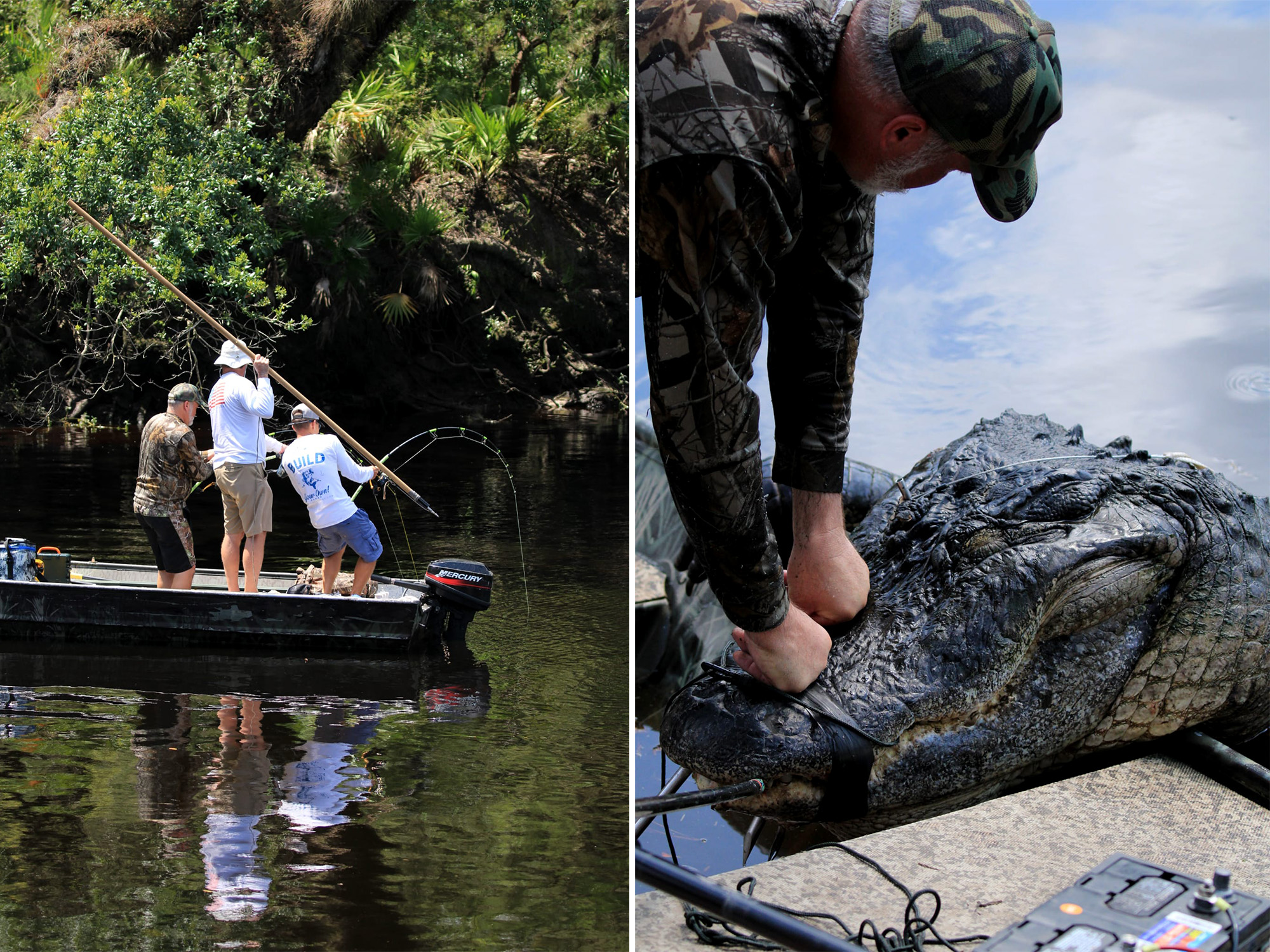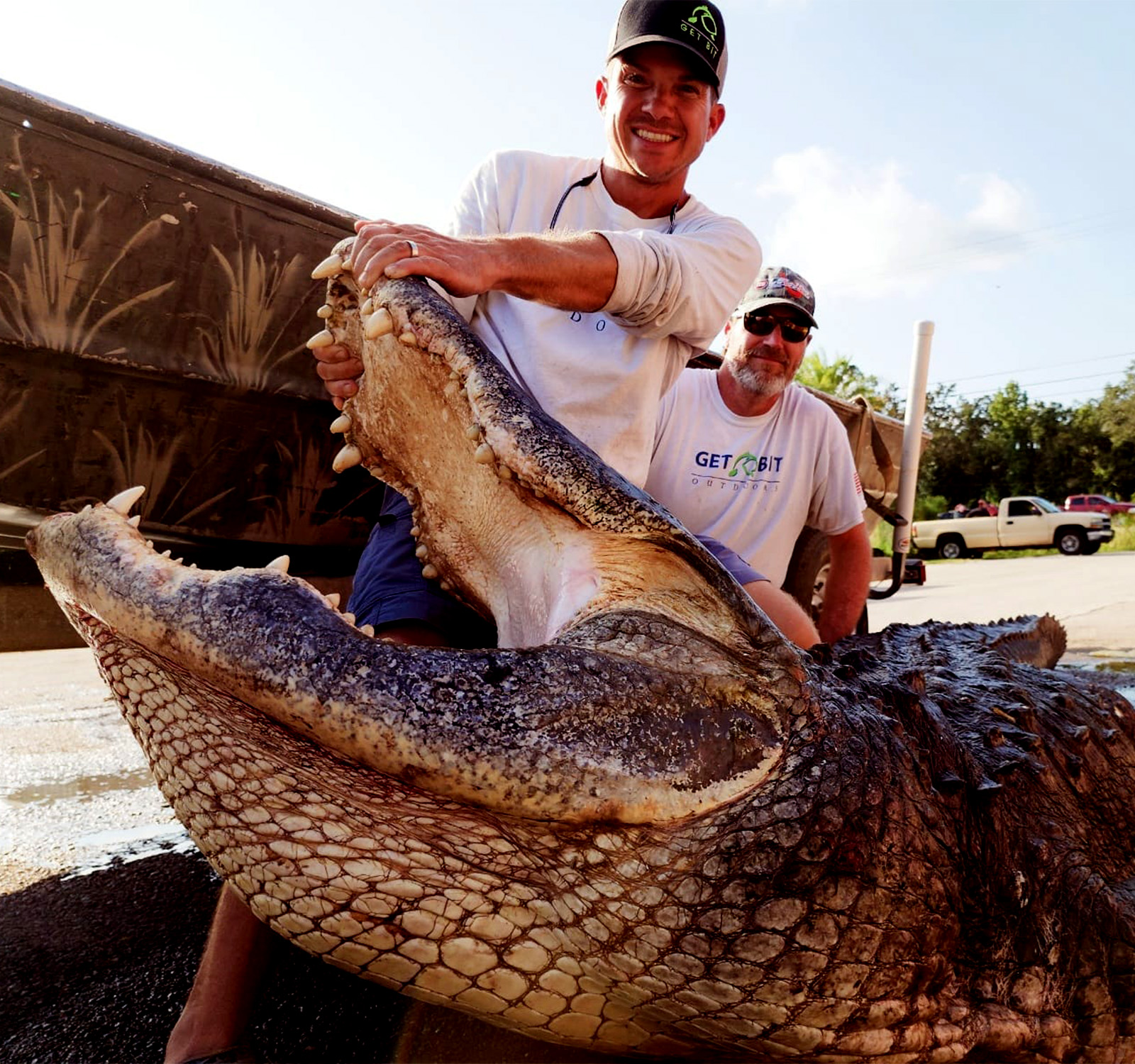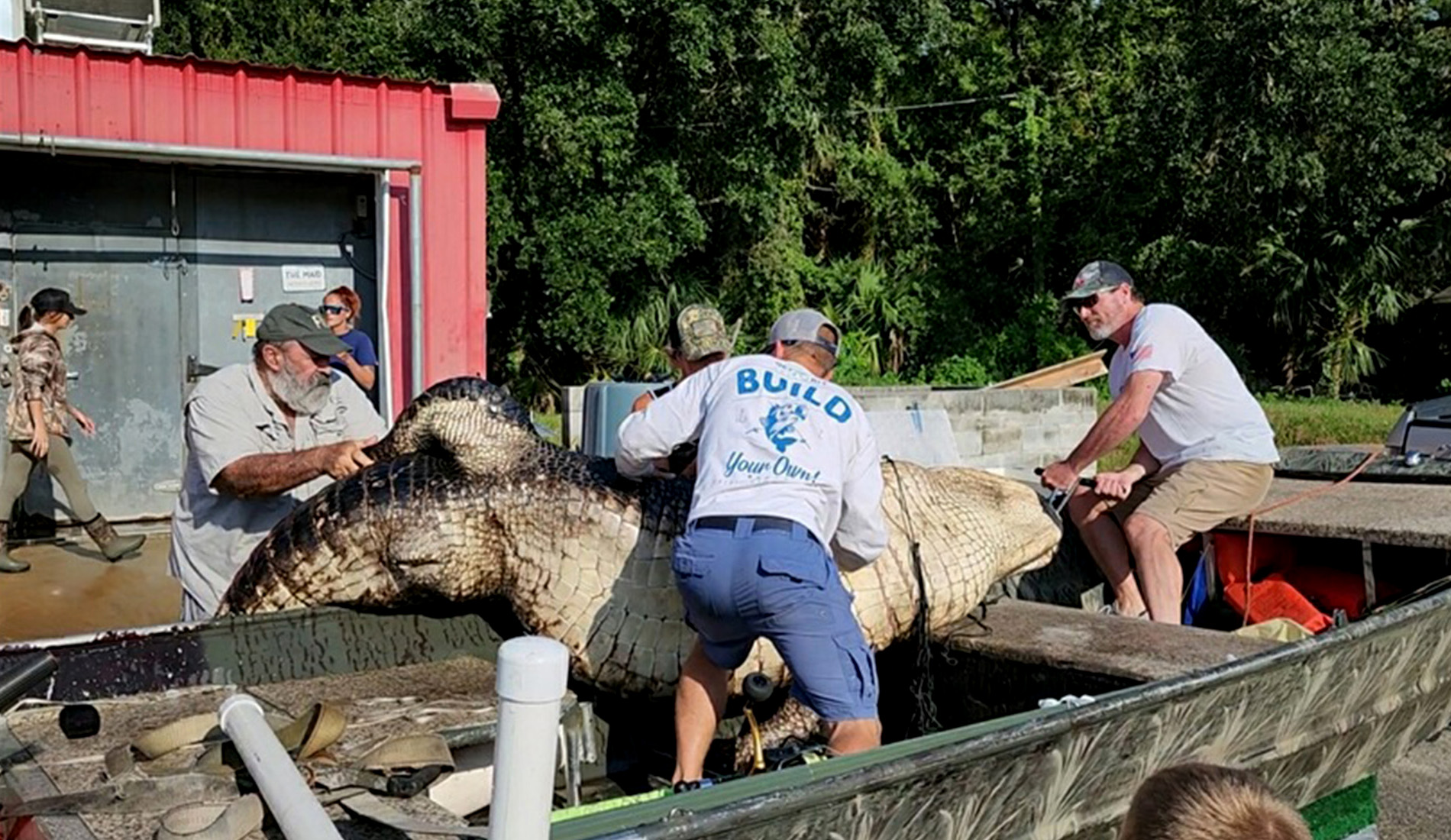Florida guide Capt. Kevin Brotz has put hunters on plenty of big alligators in his day. By his count, it’s somewhere around a thousand. In terms of sheer weight, though, none have come close to the 900-pounder that he and two buddies harvested on Aug. 25. According to records kept by the Florida Fish and Wildlife Commission, it’ll likely go down as the second-heaviest gator ever harvested in the Sunshine State.
The owner and operator of GetBit Outdoors, Brotz went out last Friday with two of his longtime clients turned close friends, Carson Gore and Darren Field. Gore had some leftover tags from this year’s draw and had given one to Brotz. With the morning to himself, Brotz invited the two hunters to join him on a lake he’d been wanting to explore near Orlando.

“I knew that area had potential, but I had never hunted this exact spot and I didn’t know he was there,” Brotz tells Outdoor Life. “When we saw the gator, we spotted him a few hours into the hunt. I thought he was nine to 10 feet, maybe 11.”
Getting the Hooks In
Over the next few hours, they played cat and mouse. They’d see its head pop up and then disappear, only to resurface half an hour later. Using stout custom-made rods and 150-pound lines, they kept casting weighted treble hooks at the gator until Field got the first hook in it. To their surprise, the gator hardly budged. Even after Brotz got a second treble hook in it, the gator didn’t seem to care and stayed on the bottom of the lake.
“Typically, you hook an alligator and he’s gonna pull drag and spin the boat around just like a big fish would,” Brotz explains. “And when you hook them a second time, they really blow up.
“Then Carson hooked him and he just kept crawling slowly on the bottom,” Brotz continues. “That’s when I knew in my gut: This is an absolute giant. This thing is a beast.”

With three lines on the alligator, Brotz threw out a hand line—essentially a rope—with a buoy on one end and a 20/0 treble hook on the other. They were able to slowly bring the gator to the surface, where Brotz hit it with a harpoon directly in the eye. The gator still didn’t blow up, and over the next three to four hours, they threw all the lines they had in the boat to try to get it back near the surface. When the alligator finally came up for air, Brotz wasn’t quite prepared for what he saw.
“I look on the opposite side of the boat not five feet away, and he porpoises up out of the water like a whale. I could see the top of his front shoulders, and he was three to four feet out of the water,” he says. “We’re standing in the bottom of the johnboat, and I’m only 5 foot 3, so I was eye-to-eye with what felt like a T-Rex.”
Feeling the Fear
Sharing a 16-foot john boat with two grown men, Brotz says they had about two inches of freeboard at that point. And after seeing the beast they had on the other end of the line, he realized for the first time how precarious their situation was.
“I really felt—not scared, like I needed to leave. But fear, as in: We need to play this smart because we could get in trouble quickly. If he had come up for air underneath us, or just happened to come over the side, we’re in the water and that boat’s sinking. Not in a good spot.”
After some creative engineering, which involved cutting and splicing some lines, and using life jackets as buoys, they finally got the massive gator near the surface again. Brotz hit it with the bang stick a few times, and they spent the next half hour untangling the gator before they could drag it to the nearest bank. Then they faced the monumental task of getting the alligator in the boat without swamping.
Read Next: How to Cook a 12-Foot Gator: Alligator Recipes from a Florida Chef
They tried to pull him over the gunnel but quickly gave up. Eventually they were able to spin the boat around, get the gator on shore, and roll him up high enough so they could roll him back down into the tied-off boat.

“It took a lot of cool, calm decision making to put it all together,” Darren says. “But I couldn’t have been with a better crew.”
Weighing the Giant Gator
It wasn’t until the following morning that they were able to weigh the alligator. (Darren had a trip that evening and left the gator in a processor’s walk-in cooler overnight.) They used a trailer to haul it to a scrapyard, where it was hoisted up with a forklift and weighed on a certified scale. Brotz’s official weight ticket showed 900 pounds.
If that weight holds up to scrutiny, it will make Brotz’s alligator the second heaviest ever harvested in the state. FWC maintains a record of the top-10 largest gators that have been taken in the wild going back to 1977, and the heaviest on record weighed 1,043 pounds. There are five other gators on the top-10 list that weighed 800 pounds or more, but none have cracked the 900-pound mark. Brotz says he spoke with FWC on Friday to start the process of getting his gator certified and added to the top-10 list. After that, he’ll be getting a full body mount done.
“It was an easy decision. There’s only one thing to do with a gator that big,” Brotz says. “He will live forever in the house as a reminder of the beast that he is.”
https://www.outdoorlife.com/hunting/second-heaviest-florida-alligator/